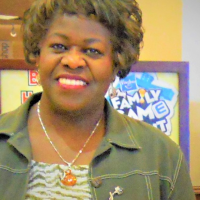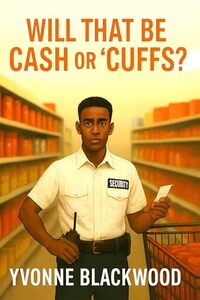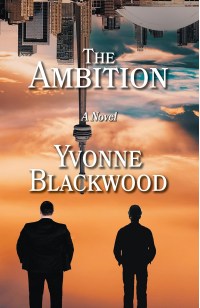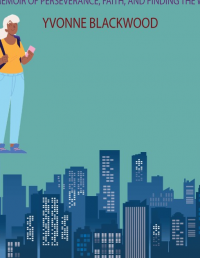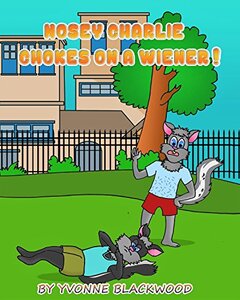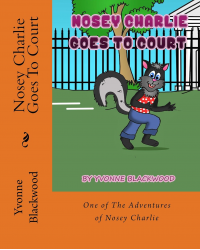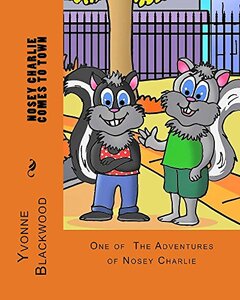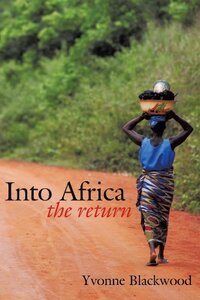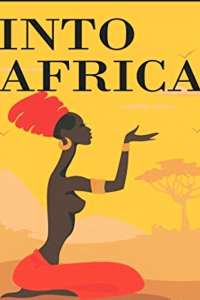Can you share the inspiration behind your debut novel, “The Ambition”? What motivated you to write it?
I worked in the banking industry for almost forty years. One of my positions was Senior Account Manager, Business Banking. In that job I observed how small entrepreneurs are passionate about their businesses, but I also learned how large corporations can take advantage of them. I wanted to write a thriller, but share this insight in the story with all the ins and outs of businesses and also incorporate the immigrant experience in the process.
You've written both adult books and children's picture books. How does your writing process differ between the two genres?
The process is quite different. A picture book is about telling a story, mainly with pictures and a few words. I do not draw; therefore, I worked with an illustrator who drew the pictures as directed. With an adult book, I paint the story with words. In writing an adult book, you must plot the scenes and decide when to use dialogue, description, and narration. You must research whether the book is fiction or non-fiction. With a fiction children’s picture book, you use your wild imagination but consider the audience you are writing for. You make sure the diction is appropriate.
As an award-winning short story writer, how do you approach the art of short fiction compared to writing longer works?
Writing short fiction is exhilarating! What is a short story? My professor of the short story course I took summed it up when she said: A short story is didactic, it has compactness, it has a point that is its underlying value system, it has unity of effect, and it has a milieu. A typical short story has 2000 to 4000 words, so you must economize on words. You plot the story, similar to writing a long fiction, but you must limit the scenes, and descriptions, use fewer characters, and fewer plot twists.
Your books cover a variety of themes, from personal journeys to social issues. What drives the subjects you choose to write about?
Passion! Seriously, passion is one thing, but I also try to share information that will inform, help, and show readers a perspective different from their own. My first book, Into Africa: A Personal Journey, was intended to show those who had never been to Africa that the continent is not all violent with people living in huts, as seen on television. It was to share my intriguing experience as a single woman travelling alone—the good and bad—and the love of the people I encountered. In the memoir, College Life of a Retired Senior, I share my story about going back to university after retirement to encourage readers planning to retire or already retired that going back to school can be a most rewarding adventure and great for mental health. In the words of Pearl Bailey, who did a similar thing, “Go for it!”
You’ve traveled extensively, and your book “Into Africa: A Personal Journey” is a reflection of that. How has travel shaped your writing and perspective?
Travelling is one of the most rewarding things anyone can do. You can read all the books in the world and watch all the movies you like, but until you have seen places first-hand, you have no idea. Travelling opened my eyes to reality, not another person’s perspective or politics. It has helped me write with passion, colour, and authenticity.
In your book “Will That Be Cash or Cuffs?" you tackle important topics related to financial issues. What do you hope readers take away from this book?
Will that be Cash or Cuffs? is the story of my son’s lived experience as he tried to find his way while attending college. It is meant to be humorous and shows the ingenuity of shoplifters. At the same time, the story highlights how a sheltered young man learned about aspects of life out there.
Your children's picture books focus on a character named Nosey Charlie. What was the inspiration for creating this character, and what do you hope young readers learn from him?
The Nosey Charlie adventure stories were inspired by the Curious George stories. They are anthropomorphic. I expect young readers to learn to be inquisitive and ask questions, but also the importance of listening to their parents.
You’ve contributed to many anthologies and magazines. How do you approach writing for a collection with other authors, and what does that collaborative process look like for you?
Most anthologies have a theme. If that is the criteria, I write a story with that theme in mind. The publisher puts the anthology together, so I do not have much connection with the other authors. On one occasion, the publisher organized a book launch for one of the anthologies I contributed to and I had a fun evening meeting some of the other contributors. Magazines usually state what types of stories they are interested in and the word count. If I have an idea for an article that meets their criteria, I submit it. For example, when Our Canada mentioned that they were seeking articles about interesting hobbies, I wrote one about my hobby of collecting Oscar-winning Best Picture movies since the Oscars started in 1927. The magazine promptly printed it with a picture of my movie cabinet to boot!
As someone who has written for various publications such as Pride Newspaper and The African Connection, how does writing for a newspaper or magazine differ from writing a book?
I suppose one would say writing is writing, and that is true where grammar, spelling, and punctuation are concerned; however, there are subtle differences with writing a book. When you write for a newspaper, your article is concise and you incorporate the where, why, when and how of the story. There is no plot; however, the story must flow seamlessly. Writing articles for magazines are similar in some respects. They are concise—usually 500 to 1200 words with themes, and you convey information. Writing a book is a different kettle of fish! The word count of the average book is 60,000 to 100,000. Your narrator tells the story from a point of view, and you have a plot, setting, conflict and dialogue. You also write in an active voice.
You’ve worked in multiple genres and formats. How has this diversity of writing experiences influenced your approach to new projects?
My experience directs how I approach each genre. I know what works for each genre and this saves time and anxiety.
In “College Life of a Retired Senior," you explore the life of an older adult navigating academia. What do you think is the biggest misconception about older adults returning to education?
I think the biggest misconception is that older adults can’t hack it in today’s world. I believe this is why more seniors do not venture into this sphere. Self-doubt is debilitating! I attended classes with students the ages of my grandchildren, but I showed them a thing or two. I also learned a few things from them. One just has to be open-minded and focused on your goals. I graduated Magna cum laude.
How do you balance the personal and professional aspects of your writing career? What challenges have you faced as you developed your voice as an author?
I wrote my first two books while working full-time as a banker. Balancing my personal and professional life was difficult because my job was not nine-to-five. I had to utilize my time wisely. Those days, I wrote into the wee hours of the morning. Now that I am retired, I write whenever I am inspired to do so, and mostly in the days. The challenge is, and has always been, how to write interesting stories that will resonate with readers, but maintain my unique voice.
What role does research play in your writing, especially when working on your non-fiction books like “Into Africa: The Return”?
Research is key in any writing. With a non-fiction book, you are writing a true, realistic story. You certainly want to make sure you include correct information. If you quote someone, it should be verbatim and the person given credit. If you mention an incident, the date you quote should be correct. Your credibility as a writer can suffer if your research is incorrect. Even writing fiction, research is critical if you mention a real place or time in history. In my novel, The Ambition, I write about the lovers visiting Rick’s Café in Jamaica. The description is from my experience. Keen readers love to check facts.
How do you handle the emotional and personal aspects of writing memoir or autobiographical content? Is it difficult to share personal experiences?
Handling personal emotional aspects in a memoir, one has to be convinced of the reason for writing it. If the reason is to help others the impact is less daunting and less difficult.
As an active member of the AllAuthor, how has being part of this platform impacted your writing career? What benefits do you find in connecting with readers and fellow authors?
Being an active member of the AllAuthor platform has been positive. I appreciate the postings of my new release on Twitter. The banner images posted have attracted several followers and positive comments. I have also connected with several authors and developed a following fairly quickly. Connecting with readers is a goal of every author and doing so easily is a plus.

